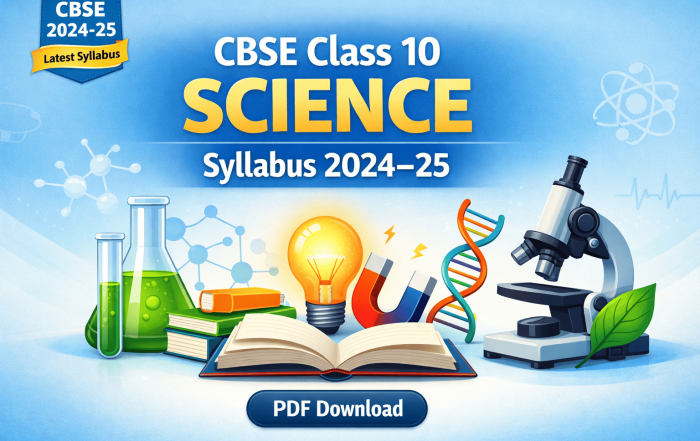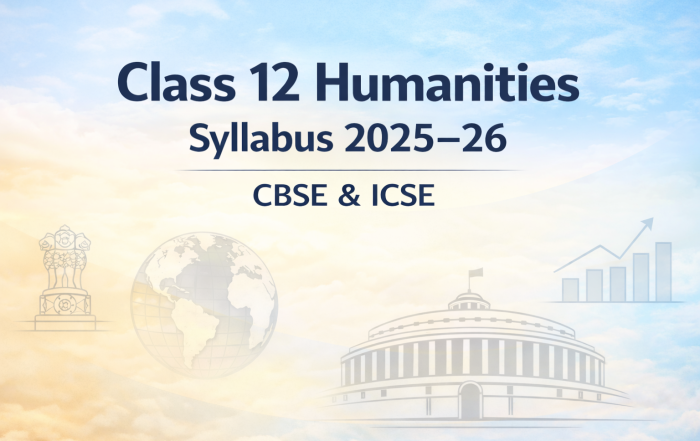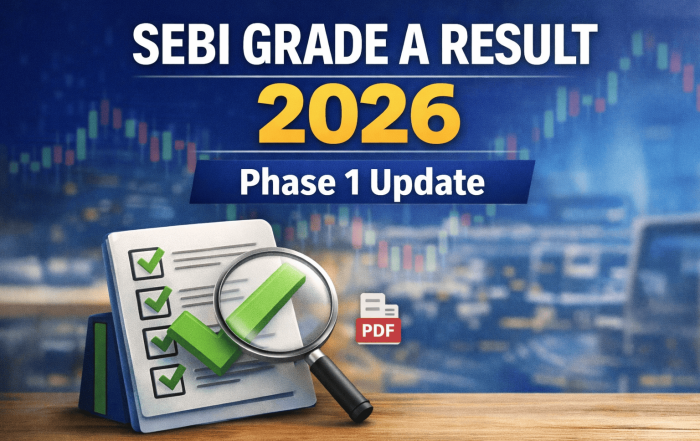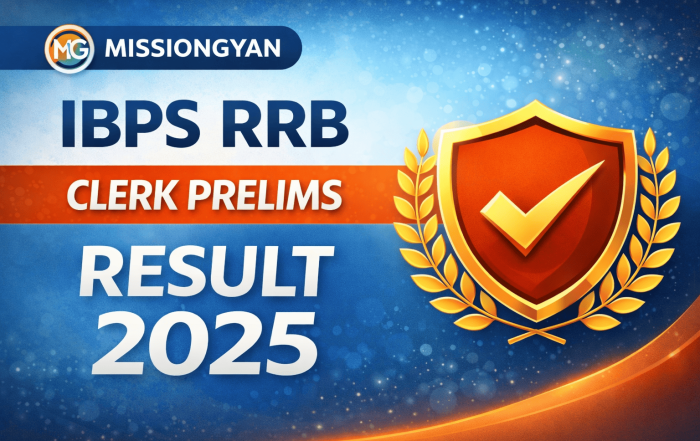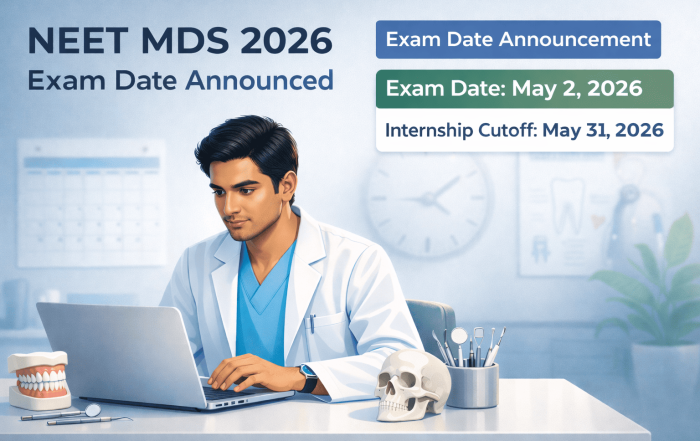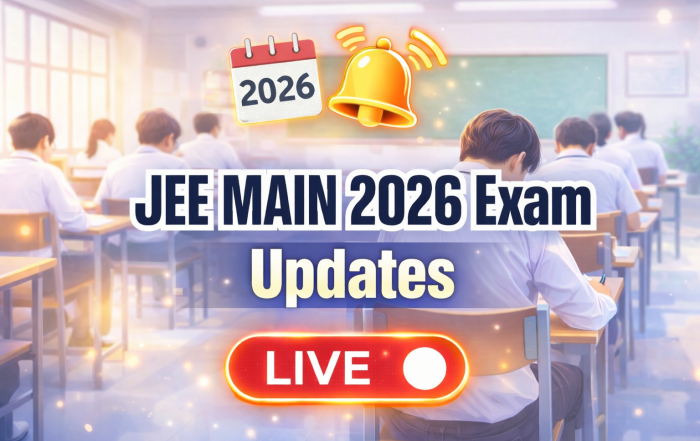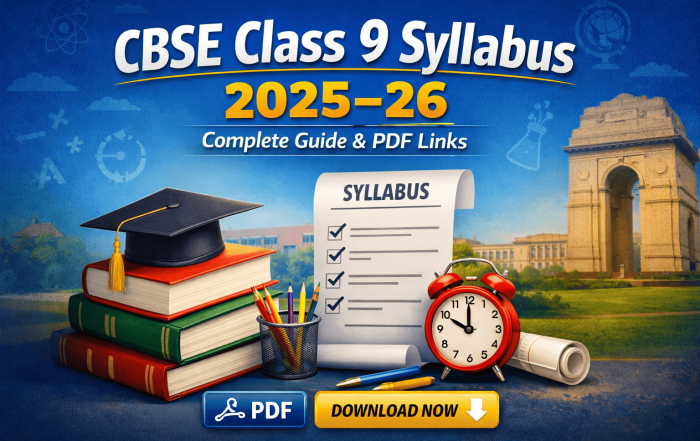RECENT POSTS
CBSE Class 10 Science Syllabus 2024–25 PDF (Updated)
CBSE Class 10 Science Syllabus 2024–25 The CBSE Class 10 Science syllabus 2024–25 is the official roadmap for your board exam and internal assessment. So, if you want a clear study plan, begin by understanding [...]
CBSE Class 10 Maths Syllabus 2025–26 (041 & 241)
CBSE Class 10 Maths Syllabus 2025–26 (041 & 241) The CBSE Class 10 Maths syllabus 2025–26 (Codes 041 and 241) is designed to strengthen concepts, improve reasoning, and build real-life problem-solving skills. Moreover, it balances [...]
RBI Office Attendant 2026: Notification, Apply & Exam Dates
RBI Office Attendant Recruitment 2026 Reserve Bank of India (RBI) has announced the RBI Office Attendant Recruitment 2026 for candidates who have passed Class 10 (SSC/Matric) and are looking for a stable, secure job in [...]
Class 12 Humanities Syllabus PDF 2025–26 (CBSE & ICSE)
Class 12 Humanities Syllabus 2025–26 (CBSE & ISC) – Complete Guide If you are a Class 12 Humanities (Arts) student, understanding the latest syllabus is the first and most important step toward scoring well in [...]
SEBI Grade A Result 2026 Out Soon: Phase 1 PDF, Date & Next Step
SEBI Grade A Result 2026 The Securities and Exchange Board of India (SEBI) successfully conducted the SEBI Grade A Phase 1 (Prelims) Examination on 10 January 2026 for candidates registered under the 2025–26 recruitment cycle. [...]
IBPS RRB Clerk Result 2025-26 Out: Prelims Status
IBPS RRB Clerk Result 2025-26 Released The IBPS RRB Clerk (Office Assistant) Prelims Result 2025-26 has been released on 23 January 2026. Candidates who appeared in the CRP RRB-XIV preliminary exam [...]
NEET MDS 2026 Exam Date Announced: Check Full Schedule
NEET MDS 2026 Exam Date Announced NEET MDS 2026 exam date has been officially announced by NBEMS. As per the tentative schedule released by the National Board of Examinations in Medical Sciences, NBEMS will conduct [...]
JEE Main 2026 Jan 21 Paper 1 PDF: Shift 1 & 2
JEE Main 2026 Paper Overview – Jan 21 Shift 1 & 2 The JEE Main 2026 Paper for Session 1 started from 21 January 2026 in CBT mode. After Shift 1 and Shift 2, students [...]
CBSE Class 9 Syllabus 2025–26 PDF: Subject-Wise Download
CBSE Class 9 Syllabus 2025–26: Complete Guide & PDF Links The CBSE Class 9 syllabus for the academic year 2025–26 has been officially released by the Central Board of Secondary Education. Students can now access [...]
IBPS RRB Clerk Prelims Result 2025: Download PDF at ibps.in
IBPS RRB Clerk Prelims Result 2025 The IBPS RRB Clerk Prelims Result 2025 will be available soon on the official website ibps.in. If you appeared for the Office Assistant (Multipurpose) prelims in December 2025, you [...]

